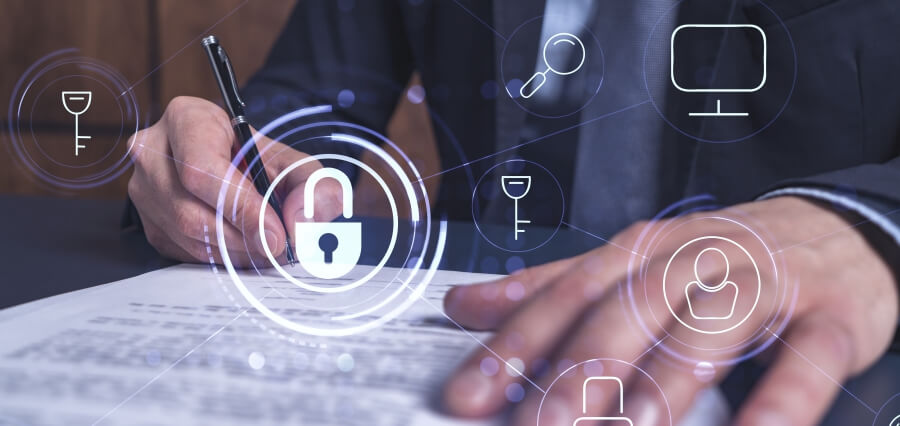The office rental market offers many options, like shared offices, co-working spaces, and private offices. Understanding security and privacy can really help when looking for the perfect office space. This article helps explain why these factors matter in the office rental market.
Risks with Inadequate Security and Privacy Measures
Not having good safety and privacy steps can lead to many risks, like data leaks, identity theft, and legal fines. A bad reputation after a security issue can drive away clients and workers, hurting business performance. Investing in strong safety and privacy steps is crucial to lessen risks and make a secure and private workplace.
Key Security and Privacy Considerations
These factors are big deals as they affect how your business runs and its image. The goal is to rent an office rental space that’s safe for everyone and keeps your data secure. This section will help your business to keep going smoothly and meet all legal rules.
Physical Security Measures
Your first step to a safe office is physical safety measures. These are ways to keep your team and belongings safe from any unwanted access or dangers. This section will talk about three important things:
Access Control Systems
Controlling who enters your office is key. Access control systems help do this. They can be as simple as a lock and key or as advanced as fingerprint or card systems. This way, you keep out anyone who shouldn’t be there, avoiding problems like theft, which makes for a better work setting.
Surveillance and Monitoring
Having cameras and alarm systems helps a lot. They scare off wrongdoers, spot funny businesses, and record what happens. This way, you can watch over your space in real time or look back at recorded footage if needed. It helps keep your operations secure and clear.
Building Security Protocols
Every building should have a set of security rules. These cover everything from having security guards and what to do in emergencies to working with local police. Good security rules make sure everyone acts together when facing safety issues.
Data Security and Privacy
Keeping data safe and private is key to choosing an office space. This part talks about why it’s important to have strong data safety steps to keep important info safe from unwanted access or loss.
Data Encryption
Scrambling, or encoding data, is a main part of keeping data safe. It changes data so that only the right people can read it. Scrambling helps keep important info safe from hackers trying to get it, ensuring the business keeps going and follows privacy laws.
Secure Wi-Fi Network
Having safe Wi-Fi in the office is key to keeping data secure while it moves through the airwaves. Using strong safety steps like WPA3 and splitting networks can really cut down the chances of data leaks or unwanted access to the business network.
Data Storage and Management
Having good systems for storing and handling data ensures that it stays safe and that only the right people can access it. This means using safe servers, cloud storage with strong safety steps, and having rules for how data is dealt with, kept, and thrown away.
Privacy Policies and Contracts
When renting a space, it’s important to look closely at the rules and agreements. This helps avoid legal issues and keeps private things private. This section talks about why it’s good to take a close look at privacy rules and rental agreements.
Reviewing Lease Agreements
Rental agreements often talk about safety and privacy in the rented space. It’s key to look at these agreements carefully to ensure they match what the company believes is right. If needed, talking about changes to the agreement is a good step.
Compliance with Data Protection Regulations
Following data protection rules is not just about obeying the law; it’s about keeping a good name for the business. Making sure the rented space helps in following these rules is key to avoiding legal problems and keeping good trust with the people involved.
NDA and Confidentiality Agreements
Non-disclosure and keeping secrets agreements are key for keeping important business information safe. These agreements should be well-made and checked carefully to ensure good protection. They should also match with the current legal rules and regulations.
Location and Surrounding Environment
When looking for an office space, the location and what’s around it greatly matters. They help keep your business, things, and team safe. This section will talk about why picking a safe and private spot for your office is key and how it affects your business’s day-to-day image.
Choosing a Secure Neighborhood
Choosing a safe area for your office is important for your team’s safety and to keep your business safe, too. They are also usually well-kept, which is good for running your business smoothly. Being in a safe area also makes your business look good, helping to draw in more clients and skilled workers. It’s good if the area has a neighborhood watch or security and enough lighting and cameras to keep trouble away.
Proximity to Emergency Services
In emergencies like fires, health issues, or security problems, having help nearby can be a lifesaver. It makes your team and clients feel safer, knowing help is nearby if needed. Plus, some insurance companies might charge less if your office is near emergency services, saving you some money.
Accessibility and Transportation Options
Your office should be easy to get to, with good transport options for everyone who comes and goes. A spot that’s easy to reach by bus or train or has good roads for driving is ideal. Good transport can also help cut down on traffic, which is better for the environment.
Future Proofing Security and Privacy Strategy
Choosing the right office space means thinking about safety and privacy. It’s like ensuring a good lock on the door and that your computer systems are well-protected. By taking the time to make a good safety plan, you can lower risks and create a safe place to work from day one.


